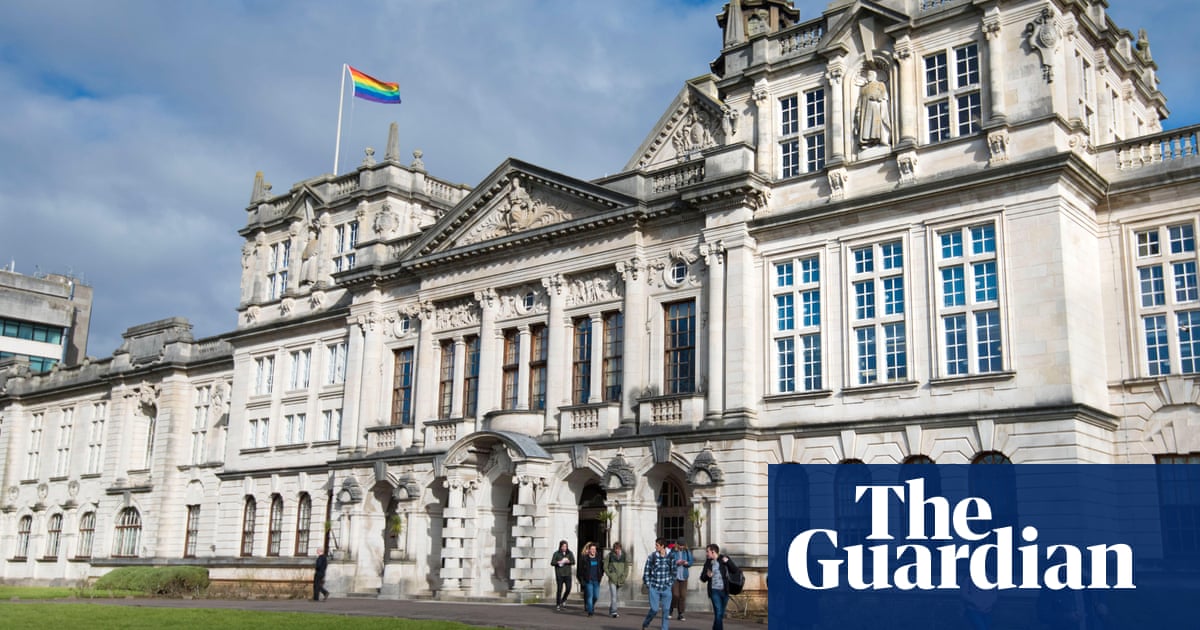A law firm that helped a UK university obtain a year-long ban on unauthorised protests, which could lead to students being jailed for up to two years, has quietly coached several others on how to take similar legal action, the Guardian can reveal.
Shakespeare Martineau LLP, which represented Cardiff University during proceedings that led to it being granted a sweeping anti-protest injunction this month, promoted the controversial type of court order to universities at a webinar last October, according to documents obtained by the Guardian andLiberty Investigatesunder the Freedom of Information Act.
Cardiff staff and students could now face prison and unlimited fines for holding protests on large stretches of their campus without permission, which must be sought three weeks in advance. It follows conflict between the university and students over a pro-Palestine encampment on campus.
Lawyers who argued against the injunction said it was so broad that it potentially covered all unauthorised protest-related activity ranging from industrial action to bake sales – though Cardiff disputes this – while a UN watchdog for protests rights called the move a “flagrant violation of international human rights law”.
When approached for comment, a Shakespeare Martineau spokesperson said this interpretation was “inaccurate”, insisting the injunction related only to “unlawful encampments”. They reiterated that the order did not not prohibit “lawful” protest, where the university had given its permission.
But two independent legal experts who examined the order’s wording agreed that it could apply to other protest activities besides encampments.
Other universities that registered for the webinar include Reading, Exeter, Northumbria, Hertfordshire, Birkbeck, Bath Spa and Liverpool John Moores. Spokespeople for these universities variously said their staff commonly attended webinars and attendance did not mean they had adopted or agreed with the measures discussed, while Exeter and Northumbria said their staff had not attended but received slides.
Falmouth and Warwick, whose staff were also recorded as having attended, did not respond to requests for comment.
Slides from the webinar show Shakespeare Martineau suggested the “newcomer injunctions” – so called because they can be used “against persons unknown” and those not involved in protests at the time it was made – like that taken out by Cardiff could represent “the future” for universities.
One attender asked whether the use of injunctions could “be seen as attempting to curtail [freedom of speech] unlawfully”, according to notes provided by a university.
The presenter said: “No I don’t see any difficulty in principle with that […] You would of course need to show to the court that the restrictions imposed by an injunction do not interfere with freedom of speech and that you can demonstrate this is a proportionate response.”
But the European Legal Support Centre, which has intervened in four university injunction cases, including Cardiff, said the tactic represented a “chilling precedent for academic institutions”, calling the injunctions “legally complex and financially impractical for affected students to challenge in court”.
Gina Romero, the UN special rapporteur for freedom of assembly, said “profiting from the […] curtailing of human rights is despicable”, in comments critical of the law firms’ promotion of the tactic to universities.
Last week England’s Office for Students published guidance due to take effect in August, advising universitiesagainst making “sweeping” protest restrictions. While the move has been welcomed by free speech lawyers, they have cautioned that it will not stop universities applying for injunctions and will need to be tested in court.
Twelve-month temporary injunctions were this week month granted to two Cambridge colleges, as well as a temporary injunction at a third.
Smita Jamdar, the head of education at Shakespeare Martineau, said it was working with universities to facilitate peaceful protests while dealing with unlawful encampments and trespass.
She said: “Universities are dealing with complex situations on campus every single day. Understandably, many institutions are seeking guidance on how to manage a whole host of situations effectively and safely, while upholding the law and balancing the rights and freedoms of the whole campus community.”
A spokesperson forCardiff Universitysaid it remained “absolutely committed to free speech and to the right to peaceful protest” but had seen “an escalation in practices that put protesters and the community at risk”.
Cardiff’s injunction is due to be reviewed in July 2026.
